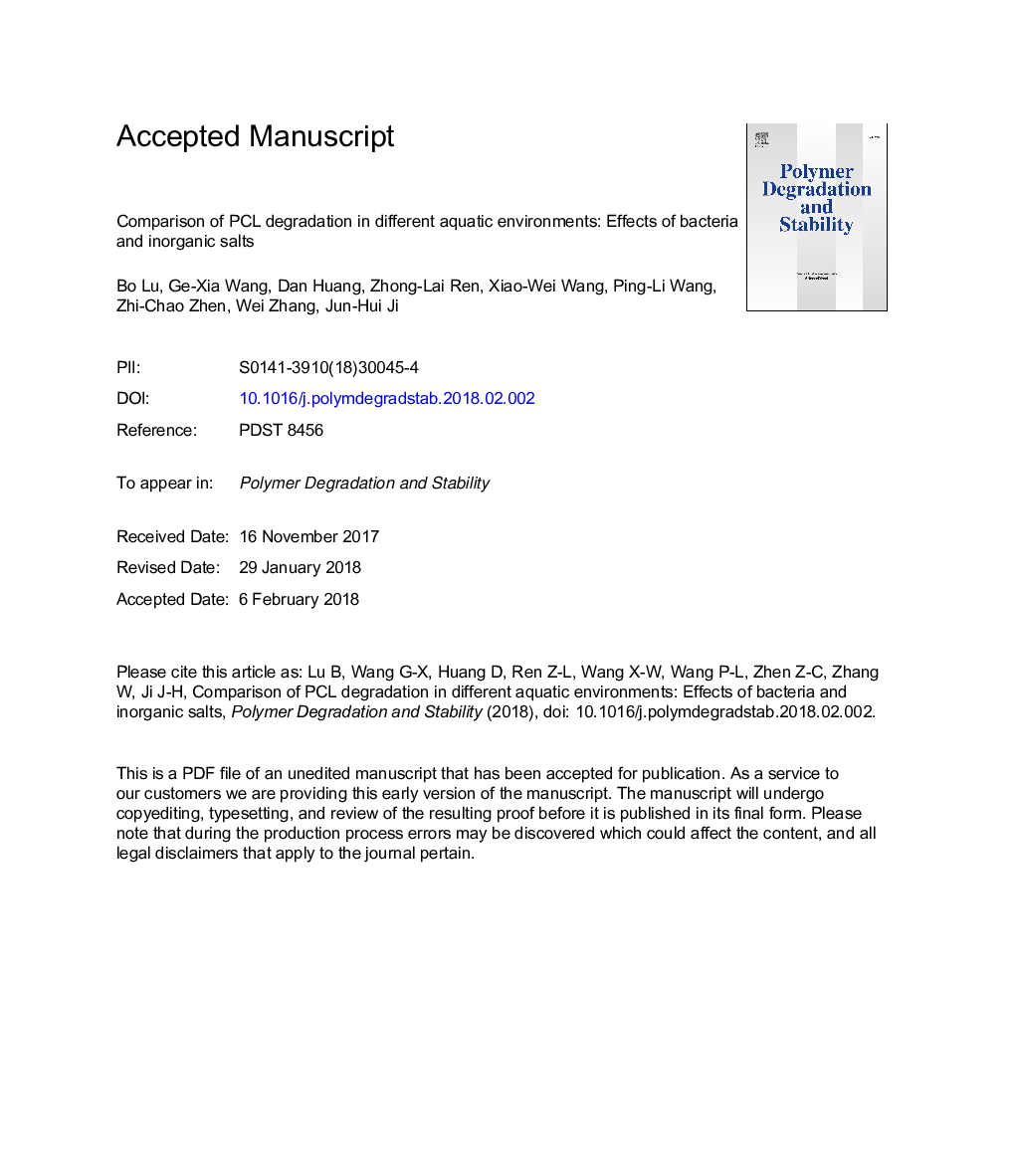| Article ID | Journal | Published Year | Pages | File Type |
|---|---|---|---|---|
| 7824112 | Polymer Degradation and Stability | 2018 | 19 Pages |
Abstract
Six different water bodies of different salinities and bacteria were set up to study the effects of microorganisms and salts on the degradation process of biodegradable polycaprolactone (PCL) spline. The experimental data for a 52-week period consistently indicate that both microorganisms and salts have an impact on the degradation process. PCL shows slow bulk hydrolysis in aseptic water and relatively rapid interfacial enzymatic degradation in bacteria-containing water however. The degradation rate of PCL in lab-prepared high-salinity seawater was noticeably higher than that in distilled water and low-salinity seawater, indicating a salt-driven acceleration of PCL hydrolysis. Because of the combined effects of factors such as the presence of bacteria, salinity, and external forces in the sea, PCL degrades fastest in natural seawater, losing 29.8% of its original weight in 52 weeks.
Related Topics
Physical Sciences and Engineering
Chemistry
Organic Chemistry
Authors
Bo Lu, Ge-Xia Wang, Dan Huang, Zhong-Lai Ren, Xiao-Wei Wang, Ping-Li Wang, Zhi-Chao Zhen, Wei Zhang, Jun-Hui Ji,
